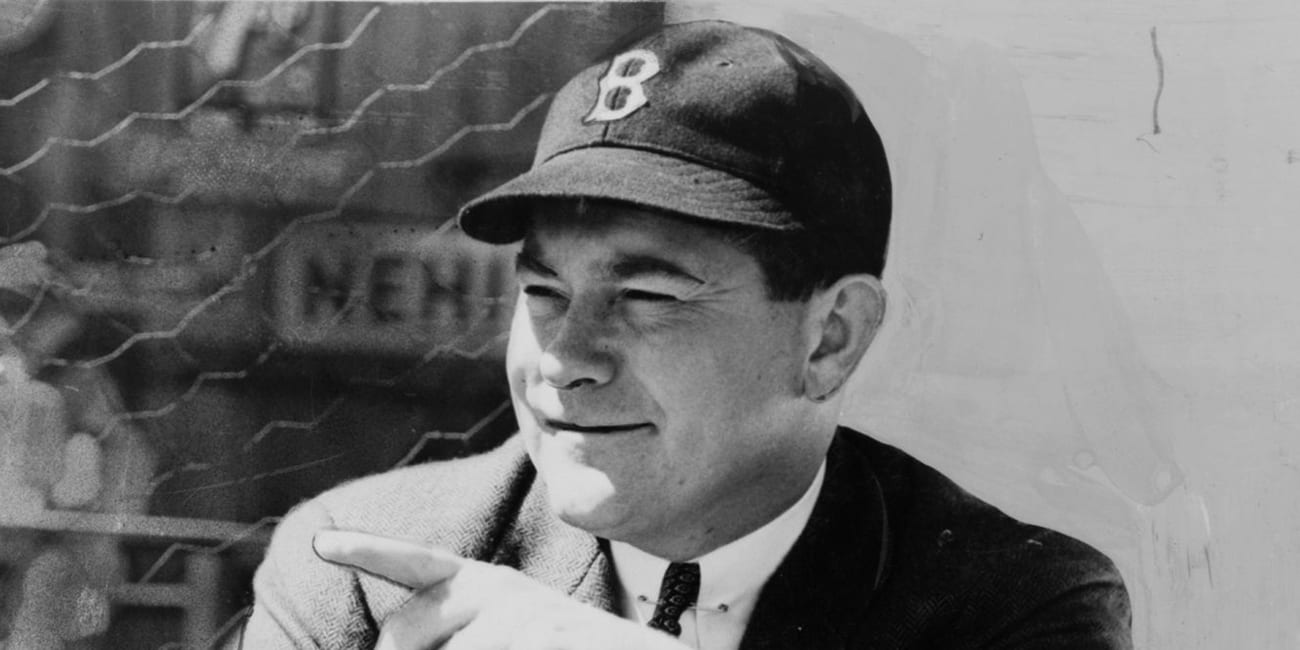Since its inception in 1955, the Harry Agganis Foundation has awarded $1.85 million in college scholarships to 945 student-athletes. It is a record of which the Foundation is justifiably proud.
And it would not have happened without Thomas A. Yawkey.
You may have heard of Yawkey, who owned the Red Sox for 43 years before his death in 1976. Perhaps you have seen his name – and that of his late wife, Jean – on Mass. General Hospital’s Center for Outpatient Care; or BU’s Center for Student Services; or BC’s Athletic Center; or Emmanuel’s Campus Center; or the Dana-Farber’s Center for Cancer Care.
Yawkey supported the work of Dr. Sidney Farber starting in 1953. He ensured the Jimmy Fund, founded in 1948 by Boston Braves owner Lou Perini, would endure in Boston after the Braves moved to Milwaukee.
“I loved the man from the bottom of my heart,” Red Sox all-time great Ted Williams once said. “He was unselfish, fair, sincere and honest.”
The structures bearing his name are brick-and-mortar testaments to the legacy of giving espoused by Yawkey, who once said: “I was always taught to help others; that those of us born with material abundance should do what we can for those who are not. I do what I can.”
Indeed. The Yawkey Foundations have donated $450 million to charity, including $300 million to organizations in and around Boston. The Agganis Foundation is proud and sincerely grateful to be on the lengthy list of recipients.
Since 1999, the Yawkey Foundation has given almost $500,000 to the Agganis Foundation’s scholarship program. All it has ever asked in return was that we present four scholarships per year to students in Boston schools. There have been 72 Yawkey/Agganis Scholars, each receiving a 4-year, $4,000 scholarship. They are living, breathing testaments to the Yawkeys’ beneficence.
Beyond that, there may be no Agganis Foundation without Yawkey. He, along with Daily Evening Item owner Peter Gamage, Lynn attorney Charles Demakis and Agganis mentor Harold Zimman, launched the Foundation shortly after the legendary Lynn Classical, BU and Red Sox standout died at the age of 26. Without the support of Yawkey and the weight of the Red Sox name, it is far from certain that the Agganis Foundation would still be viable 63 years later.
Sadly, Tom Yawkey’s name has been in the news for other reasons in the past several months, as the current owner of the Red Sox has launched a crusade to rename Yawkey Way, which was named for the former owner in 1977, a year after his death.
Ostensibly, John Henry lists as the reason for the expungement the fact that the Red Sox, under the Yawkey regime, were the last major league team to sign a black player. That is true. They signed Pumpsie Green 12 years after Jackie Robinson broke the color barrier in 1947.
Also true:
- The Red Sox signed a black player to a minor-league contract in 1950.
- In 1950 and 1952, they tried to trade Dom DiMaggio to Cleveland for Larry Doby, but the Indians refused to make a deal.
- In 1957, when less than 10 percent of all major league players were black, the Red Sox were set to promote pitcher Earl Wilson, whom they signed in 1953, to the major league club, but he was drafted by the U.S. Marines and served two years. He eventually joined the team in 1959, after Green’s debut.
The point here is not to make a judgment on the racial sensitivity of Thomas A. Yawkey. I am not qualified to do that. Neither is John Henry, who claims to be “haunted” by Yawkey’s alleged racist legacy, yet has allowed Tom and Jean Yawkey’s initials to remain in Morse code on the Fenway scoreboard in the 16 years he has owned the team.
The point is that any retrospective on Yawkey should be seen through a wide lens, one that encompasses the mountain of good deeds done in his name. Failure to do so would be a mistake.
Paul K. Halloran Jr. is the executive director of the Agganis all-Star Games.

